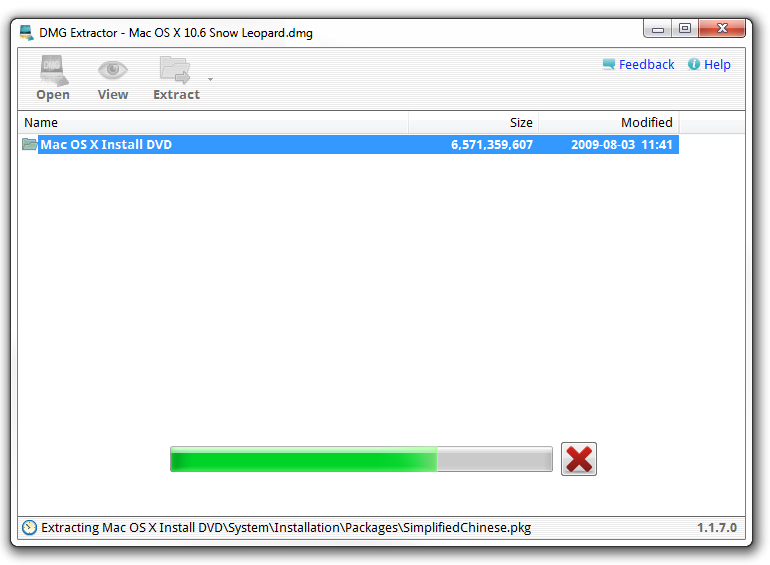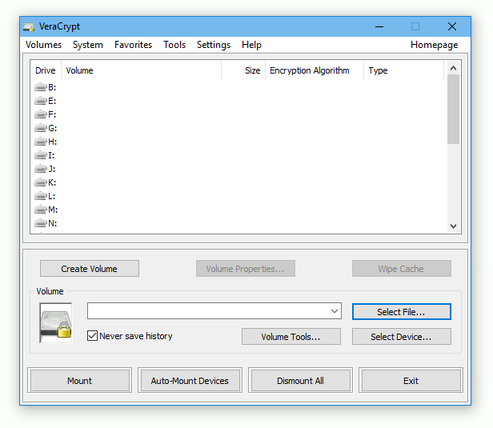In my previous article about creating a 'mountable' disk image in GNU/Linux, I explained how to create a file that effectively mimics the functionality of a disk: I explained how to create a file which will then be used, in turn, to contain directories and files. In this article I will explain how to make the next natural step: encrypt that file.
Linux Mount Encrypted Dmg Converter
My previous article could be summarise like this:
- Make a file with
fallocate -l 512M image.iso - Create a file system on it with
mkfs.ext4 -j image.isoormkfs.fat image.iso - Mount the file right-clicking on it
Linux Mount Encrypted Dmg File
Mount the Encrypted Disk Image. To mount the encrypted disk image in the future, locate its file on your hard drive—it will have the.dmg file extension—and double-click it. A 'DMG' file, short for 'disk image,' can be used as a container to store one or more files if desired. Hdiutil is the answer for another related question I had: how to unmount encrypted dmg and 'lock' it for it start to ask password on new mount. Answer is hdiutil eject /Volumes/yourvolume – Vladimir Tolstikov Aug 18 '17 at 18:02. My question says it all: on Ubuntu, is there any way to mount a.dmg file (as produced by OS X's Disk Utility) that contains an AES-encrypted, FAT12 filesystem? I've seen sporadic advice about how to mount.dmg files containing hfsplus filesystems, so I'd have thought the fat12 (aka, 'msdos') filesystem would be even easier. I have an LUKS encrypted hard disk that I need to mount from a live boot USB for Ubuntu 15.10. To do so I started with the following command, To do so I started with the following command, udisksctl unlock -b /dev/sda3. After you're done accessing the image, unmount any mounted filesystems on the partition devices, sudo cryptsetup luksClose the encrypted image, then undo the loop device binding: If you used kpartx, first run sudo kpartx -d /dev/loop0 to release the partition devices. If you used losetup -P, this step is not needed.


This bets for the question: is it possible to change things so that the information on the file is encrypted?
The first step is to install the dm-crypt tools, which will give you the commands to create an encrypted file. In Ubuntu, just type sudo apt-get install cryptsetup. Note that cryptsetup tends to be already installed on CentOs by default.
You will still need to create an empty file:
An empty file like this is like an empty shell; rather than putting the file system on top with mkfs, we will use the cryptsetup command to put a LUKS container in it:
You will be asked to enter a password to encrypt the file:
A quick note about the password: the -y option is there so that cryptsetup will ask you to confirm the password. You must remember that if you lose that password, there is nothing you can do to get it back; there is no master password, and there is no way to recover it (unless you decide to brute force it, by trying passwords from a dictionary).
After this command, the enc.iso file will be a 'LUKS container'. There is no trace of a file system on it yet: it's just en empty, encrypted shell.
At this point, it's time to create a file system on the container. You cannot simply run mkfs.ext4 image.iso: if you do, you will overwrite the LUKS container data you just created (and will replace it with a plain, unencrypted file system).
In order to open the LUKS container, you will need to use the cryptsetup luksOpen command like so:
Linux Mount Encrypted Dmg Download
It's the same command as before, cryptsetup, but with a luksOpen option rather than luksFormat.
In order to open the LUKS container, you will be asked to enter a password. What you enter will need to match what you set.

The command above will map the file enc.iso to the volume encVolume. What this means, is that it will decryptenc.iso and will make it available, unencrypted, as the volume encVolume. The volume encVolume will be available as /dev/mapper/encVolume.
So:

This bets for the question: is it possible to change things so that the information on the file is encrypted?
The first step is to install the dm-crypt tools, which will give you the commands to create an encrypted file. In Ubuntu, just type sudo apt-get install cryptsetup. Note that cryptsetup tends to be already installed on CentOs by default.
You will still need to create an empty file:
An empty file like this is like an empty shell; rather than putting the file system on top with mkfs, we will use the cryptsetup command to put a LUKS container in it:
You will be asked to enter a password to encrypt the file:
A quick note about the password: the -y option is there so that cryptsetup will ask you to confirm the password. You must remember that if you lose that password, there is nothing you can do to get it back; there is no master password, and there is no way to recover it (unless you decide to brute force it, by trying passwords from a dictionary).
After this command, the enc.iso file will be a 'LUKS container'. There is no trace of a file system on it yet: it's just en empty, encrypted shell.
At this point, it's time to create a file system on the container. You cannot simply run mkfs.ext4 image.iso: if you do, you will overwrite the LUKS container data you just created (and will replace it with a plain, unencrypted file system).
In order to open the LUKS container, you will need to use the cryptsetup luksOpen command like so:
Linux Mount Encrypted Dmg Download
It's the same command as before, cryptsetup, but with a luksOpen option rather than luksFormat.
In order to open the LUKS container, you will be asked to enter a password. What you enter will need to match what you set.
The command above will map the file enc.iso to the volume encVolume. What this means, is that it will decryptenc.iso and will make it available, unencrypted, as the volume encVolume. The volume encVolume will be available as /dev/mapper/encVolume.
So:
/dev/mapper/encVolumeis the exact same size asenc.iso;- Changing information in
/dev/mapper/encVolumewill imply that the same information will change inenc.iso-- however, the information inenc.isois encrypted - Changing the file
enc.isodirectly will result in immediate, complete data loss as the information on it is completely encrypted /dev/mapper/encVolumeis only available after openingenc.isowithcryptsetup lukOpen(and providing the correct password)
Linux Mount Encrypted Dmg Files
While you are free to write anything you like on /dev/mapper/encVolume, if you think about it for a second, the most useful thing to store on it is.. a file system.This is easily done with:
Once again: this command will write information on /dev/mapper/encVolume, which is only an 'decrypted view' of the file enc.iso.
At this point, you can mount /dev/mapper/encVolume as you would do.
LUKS stands for Linux Unified Key Setup. As the name says, it is a Linux tool. It's difficult to open volumes encrypted with LUKS in Windows or Mac. So, if your goal is to exchange files, LUKS might not be the best solution.
Linux Mount Encrypted Dmg
This is the same reason why it doesn't really make sense to create a file system like vfat Subnautica download free. on a LUKS container: the container will most likely be opened by a Linux machine, able to read ext4 file systems.

